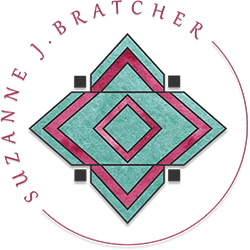A Festival of Questions
Reading the seventh chapter of the Gospel of John is like stepping into a whirlwind of questions. It’s festival time in Jerusalem: the feast of the tabernacles commemorating the harvest and God’s goodness to the people during their time in the wilderness. Jesus stays behind the scenes for the first few days because he knows there’s a lot of disagreement about who he is. Some believe he’s the Messiah; others (including his brothers) believe he’s demon-possessed or simply crazy. To add to the confusion, the authorities are looking for him.
Midway through the festival, Jesus shows up at the Temple teaching. It doesn’t take long for the Pharisees to appear questioning his authority and demanding the guards arrest him. But some of the people are skeptical of the religious leaders’ take on this extraordinary teacher. “Isn’t this the one they were out to kill? And here he is out in the open, saying whatever he pleases, and no one is stopping him. Could it be that the rulers know that he is, in fact, the Messiah?” (John 7:25-27)
The people split into two camps: one group saying Jesus is the Messiah; another group saying the Messiah couldn’t possibly come from Galilee. Without knowing it, these observers stumble on the truth that no one will know where the Messiah comes from. Provoked by their unbelief, Jesus tells them they don’t get it because they don’t know the One who sent him.
Jesus Knows Who He Is
After Jesus takes his stand and invites people to come to him and drink living water and many in the crowd believe in him, the Pharisees demand that the Temple police arrest Jesus. A surprising thing happens: the police can’t bring themselves to do it. They tell the flabbergasted Pharisees, “Have you heard the way he talks? We’ve never heard anyone speak like this man.” (John 7:46) Then Nicodemus asks another question—why not listen to Jesus before deciding his guilt? Not exactly what the Pharisees want to hear. Still, that question seems to settle the argument for the moment. Everyone goes home.
So many opinions, so many divisions about who Jesus was. But this chapter gives us a clear example of Jesus’ self-knowledge and, therefore, his confidence. Jesus knew who he was, who had sent him, and where he was headed.
Following Jesus’ Example
Today’s confusing world puts many of us in a similar situation. Authors, for example, face a contentious publishing world. Some say we ought to self-publish, while others tout new small houses as the best option. Still others believe holding out for a contract with a large publisher is the best route. What’s best? How’s a writer to know? Other professions are just as contentious. Are public schools better than private schools? What about magnet schools or home schooling? Is it better for a CPA to work in the private sector or specialize in public accounting? How much and what kind of education do pastors need? So many questions. So many opinions.
Jesus’ example of knowing himself and his work stands out to us today. He looked to his moorings and consulted with his own heart. He chose his time and his place without letting others influence him. In the midst of a whirlwind of questions, Jesus remained steadfast in his mission to the world. Public opinion failed to sway him from his goal.
Prayer
Help us Lord, in whatever our personal mission, to look to You and our hearts for guidance in our own whirlwind of questions.
by Gail Kittleson
http://www.gailkittleson.com/
www.facebook.com/GailKittlesonAuthor
http://amazon.com/author/gailkittleson
www.twitter.com/GailGkittleson @GailGkittleson


 A passionate reader, I began writing as a young girl. After graduating from college, I became a teacher. Over the course of my career, I taught high schoolers, college undergraduates, and public school teachers how to write personal narratives, expository and persuasive essays, as well as poetry and short fiction. I continued to write: publishing professional articles, two textbooks, short stories, and poetry. In 2013, I won first place in Romantic Suspense in the ACFW Genesis Contest.
A passionate reader, I began writing as a young girl. After graduating from college, I became a teacher. Over the course of my career, I taught high schoolers, college undergraduates, and public school teachers how to write personal narratives, expository and persuasive essays, as well as poetry and short fiction. I continued to write: publishing professional articles, two textbooks, short stories, and poetry. In 2013, I won first place in Romantic Suspense in the ACFW Genesis Contest.
Leave a Reply